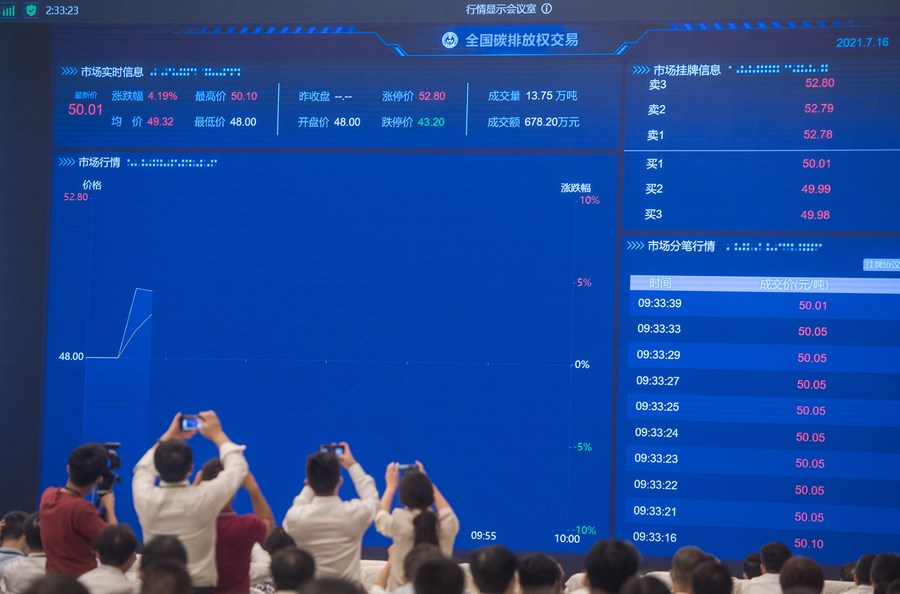Green Finance Boosts Sustainable Development

It is pleasing to see the expanded scope and intensity of the development of green financing in China, which allows for more robust and rapid long-term development in the future.
China is now one of the world’s most active and enthusiastic countries working towards establishing a green financial system for balanced and sustainable development. Meanwhile, the system is also expected to play an important role in China’s efforts to reach the “dual carbon goals,” which aim to peak carbon dioxide emissions before 2030 and achieve carbon neutrality before 2060.
According to the People’s Bank of China, green finance generally refers to the wide range of financial services offered for economic activities that afford environmental conservation, climate change mitigation and resource utilization. China’s green finance policies and initiatives are diverse and touch upon renewable energy, water treatment plants, recycling facilities and transportation.
Green finance in China requires comprehensive development, which touches upon the institutional structure and policies, laws and regulations, financial resources and support. Innovation and creativity among individuals are crucial to ensure sustainable development and exploring the niche. In this process, policies and actions in various aspects can be important, including green bonds, green lending, green development funds, green insurance, markets for pollution control rights, local government initiatives and international cooperation.

In 2022, the China Banking and Insurance Regulatory Commission issued green finance guidelines for the banking and insurance industry. It was another prominent move for expecting banking and insurance industries to identify, monitor, prevent and control their environmental, social and governance risks by collecting and disclosing relevant information and communicating and interacting with various stakeholders. It is pleasing to see the expanded scope and intensity of the development of green financing in China, which allows for more robust and rapid long-term development in the future.
In addition, provincial and local governments have subsequently been issuing green finance guidance documents, piloting green finance zones, and rolling out preferential policies for institutions and enterprises. Joint efforts have been made to ensure an efficient and effective system. There is a dynamic interplay across the various levels of the governments in actualizing green financing. There is also very close mobilization and collaboration across individuals and sectors. All these factors are crucial in shaping a conducive atmosphere for green finance to be rooted in the country and further expanded to the world.
One of the biggest lingering challenges is the establishment of a unified system for green finance. China has offered some guidance on promoting green finance by various departments, but many differences exist in practice. A unified system helps avoid discrepancies in the interpretation and actualization of incentives and practices. Moreover, a coherent and coordinated approach can increase the incentive and participation of various parties, such as financial investment, manpower sourcing, scientific research and development, as well as overall promotion and publicity, both domestically and globally.
Another issue is the gap between planning and implementation. While these guidelines are crucial for offering insights into how to practice green finance, they are still voluntary, meaning that there are no legally binding forces to constrain the behaviors of individual actors. There is still a tendency for some sectors to prioritize their short-term and individual interests over long-term interests. Therefore, in the future, more monitoring and evaluative mechanisms are expected to be set up to prevent financial risks and ensure the popularization of the initiative as a whole.
Mathew Wong is an assistant professor in the Department of Social Sciences at the Education University of Hong Kong.
 Facebook
Facebook
 Twitter
Twitter
 Linkedin
Linkedin
 Google +
Google +










